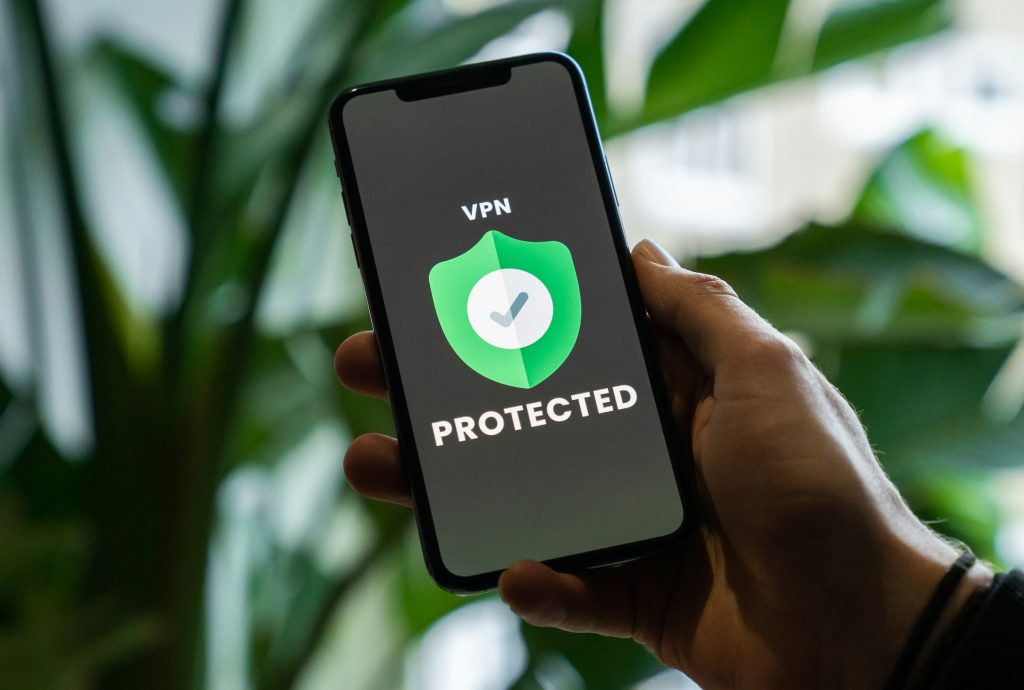In a digital world where data breaches and cyber threats are becoming more frequent, protecting your online privacy is no longer optional—it’s a necessity. VPN services (Virtual Private Networks) have emerged as one of the most effective tools to ensure your data remains secure. As we head into 2024, the demand for VPNs continues to grow, not just for privacy protection but also for bypassing geo-restrictions and securing remote work environments. In this article, we’ll explore how VPN services in 2024 can help keep your data safe, highlight key trends in the industry, and offer practical guidance on choosing the right VPN.

Why VPN Services Matter in 2024
In 2024, the need for online privacy is more significant than ever. With the rise of cyberattacks, surveillance, and data harvesting by corporations and governments, using a VPN ensures that your internet activities remain private. When you connect to a VPN, your data is encrypted, which makes it unreadable to hackers or third parties. This is crucial for protecting sensitive information, especially if you’re accessing the internet on public Wi-Fi networks, which are often unsecured.
Moreover, many companies are embracing remote work as a permanent option, increasing the need for secure, encrypted connections. VPNs not only secure your connection but also allow you to access your company’s network safely, no matter where you are in the world. This is how VPN services in 2024 have become a key security tool for businesses and individuals alike.
Emerging Trends in VPN Services for 2024
The VPN industry is constantly evolving, and 2024 brings several new trends that enhance both privacy and user experience. Understanding these trends will help you choose a VPN service that keeps up with the latest advancements.
- Quantum-Resistant Encryption: As quantum computing advances, there is a growing concern that traditional encryption methods could be vulnerable to future quantum attacks. VPN providers are beginning to integrate quantum-resistant encryption protocols to ensure that user data remains secure, even as quantum technology develops.
- Multi-Hop VPNs: One of the emerging trends in 2024 is the use of multi-hop VPNs, which route your internet traffic through two or more VPN servers. This additional layer of security makes it even harder for anyone to track your online activities, as your data is encrypted multiple times. It’s a great feature for those who prioritize maximum privacy.
- WireGuard Protocol: The WireGuard protocol continues to gain popularity as a faster, more efficient alternative to traditional VPN protocols like OpenVPN. In 2024, more VPN providers are adopting WireGuard for its simplicity, improved security, and faster connection speeds, making it ideal for streaming, gaming, or working remotely.
- Split Tunneling: Split tunneling allows users to route some of their internet traffic through a VPN while allowing other traffic to access the internet directly. This feature is becoming more widespread in 2024 as users seek flexibility in managing their data and bandwidth. For example, you could use split tunneling to protect sensitive work data with a VPN while accessing local content without encryption.
Key Factors to Consider When Choosing a VPN in 2024
Choosing the right VPN can be overwhelming with so many options available, but focusing on the following factors will help you make an informed decision.
- Security Features: Look for VPNs with robust encryption standards, like AES-256, and advanced features such as kill switches and DNS leak protection. Additionally, ensure the VPN uses secure protocols, with WireGuard being the current frontrunner in terms of both speed and security.
- Server Network: A good VPN will have a broad network of servers in multiple countries. This not only improves connection speeds but also gives you more options for bypassing geo-restrictions, whether you’re streaming content or accessing sites in censored regions.
- No-Log Policy: A strict no-log policy ensures that your VPN provider doesn’t track, store, or sell your browsing data. As mentioned earlier, opt for VPNs that have undergone independent audits to verify their no-log claims.
- Speed and Performance: VPNs can sometimes slow down your internet connection due to the encryption process. However, modern VPNs—especially those using WireGuard—offer high-speed connections that allow for seamless streaming, gaming, or downloading.
- Ease of Use: Whether you’re a tech enthusiast or a casual user, a VPN should be easy to set up and use. The best VPN services in 2024 offer intuitive apps across all devices, ensuring that anyone can protect their data without hassle.
How VPNs Help Bypass Geo-Restrictions
One of the significant benefits of using a VPN is its ability to bypass geo-restrictions. In 2024, content providers and governments continue to impose restrictions on what can be accessed based on geographic location. A VPN allows you to connect to a server in another country, making it appear as though you’re browsing from that region. This is particularly useful for accessing streaming services like Netflix, which have different libraries based on your location, or for navigating internet censorship in countries with strict controls on web access.
Additionally, VPNs are widely used by travelers who need to access services or accounts that are only available in their home country. By using a VPN, you can securely log in to your banking services or business networks as if you were still in your home country, adding convenience and security when traveling.
VPNs and Remote Work in 2024
As remote work becomes more prevalent, companies are placing greater emphasis on cybersecurity for their remote employees. VPNs are a vital tool for ensuring that remote workers can safely access corporate networks and sensitive information. Without a VPN, employees using public Wi-Fi are particularly vulnerable to hacking attempts, data breaches, and man-in-the-middle attacks.
Moreover, many organizations now require their employees to use VPNs while working remotely, especially when handling confidential information. In 2024, businesses are expected to increasingly adopt VPN solutions that not only protect their workforce but also integrate seamlessly with other security measures like multi-factor authentication (MFA) and endpoint security software.
The Future of VPNs
As cyber threats evolve, VPN services will continue to adapt to new challenges. The trends we’re seeing in 2024, such as quantum-resistant encryption and multi-hop technology, are just the beginning. Experts predict that VPNs will integrate even more advanced features in the coming years, such as artificial intelligence to detect and block threats in real-time.
Furthermore, with more governments considering regulations on VPN usage, it will be interesting to see how the industry navigates potential legal restrictions while maintaining the core mission of providing users with privacy and security.
Conclusion
As we move into 2024, using a VPN has never been more essential for securing your online privacy. Whether you want to protect your personal data, bypass geo-restrictions, or secure your remote work connections, VPN services offer a robust solution. The evolving trends in the VPN industry, such as quantum-resistant encryption and multi-hop VPNs, ensure that these tools will continue to provide cutting-edge protection. By staying informed and choosing the right VPN for your needs, you can navigate the digital world safely and securely.
References
- Minar, David. VPN Security: Protecting Your Data in the Digital Age. Tech Press, 2020. Available here.
- Masterson, James. The Complete Guide to Internet Security and Privacy. CyberWorld Publishing, 2021. Available here.
- Hunt, Richard. Understanding VPNs: A Comprehensive Guide. Wiley Tech, 2019. Available here.
- Klein, Laura. Cybersecurity and VPN: The Essential Handbook for Digital Privacy. NetSecure Press, 2022. Available here.
- Peterson, Amelia. Privacy in a Connected World: Navigating VPNs and Internet Security. GlobalNet Publications, 2020. Available here.









